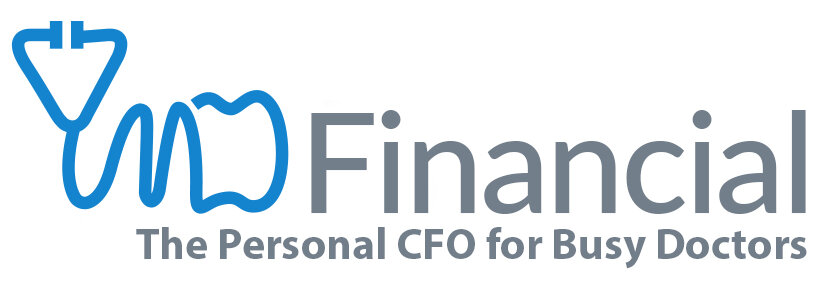Election day is fast approaching. As it draws near, there are more and more speculations about what will happen to the markets. This speculation leads to a lot of apprehension and doctors asking, “Katherine, should I take my money out of the market?” The answer is almost always, “no”, and today we’ll discuss why.
Turbulent markets come from millions of investors buying and selling in anticipation of what they think other investors will buy or sell, and then trying to time the market. Guessing is a dangerous game when it comes to your finances! We can never know for sure who is going to win an election until the final ballots are tallied, but we can still have confidence in the market no matter the outcome.
2016 Election
In the 2016 Presidential election, the polling was too close to decide if it would be a Clinton or Trump victory. Many articles stated that a Trump win would mean a stock market fall. In fact, the opposite occurred. Following election day, the S&P 500 closed 1.1% higher. So if we would have pulled money out based on a feeling, we would have lost out on that gain!
What about midterm elections?
Midterms rarely affect the market in notable ways. Looking back at midterm election periods all the way to 1926, they rarely had high market variation compared to non-election months. With most election periods ending between -1% and +7%.
Steady Growth
When we look at the history of stock markets, we are able to see clear patterns that prove the phrase, “time in the market is more important than timing the market”.
If one dollar was invested in the S&P 500 in January 1926, and never taken out, it would have grown to about $10,000 by the end of June 2022. This money would have stayed in the market through the Great Depression, Democrat, Republican, and mixed control of Congress and still seen steady and constant growth over the years.
How do you take advantage when a market is already down? Here are three quick tips to help you do just that:
If you haven’t already, look into dollar-cost averaging. Dollar-cost averaging involves investing the same amount of money in the market at regular intervals over a certain period of time, regardless of price. By using dollar-cost averaging, you may lower your average cost per share and reduce the impact of a volatile market.
Do you have extra funds, or a bonus coming your way? A down market is a great time to put that money in. Share values are down, and you’ll be able to collect more of them.
This could be a good time to convert your IRAs to a Roth IRA. If you convert when the value is down, you’ll have a smaller tax bill at the end of the year.
Stay the course, because over and over again, the science has proven true. Take heart that turbulent markets tend to be short term. Remember the mantra “facts over feelings”; try not to let your stress about the market affect your decision making, and talk to your advisor instead!
Listen on Apple Podcast, Google Podcast or Spotify
CONTACT US
1-888-256-6855
Remember that you can send us any questions at: Info@MDFinancialAdvisors.com
Katherine Vessenes, JD, CFP®, is the founder and CEO of MD Financial Advisors who serve 500 doctors from Hawaii to Cape Cod. An award-winning Financial Advisor, Attorney, Certified Financial Planner®, author and speaker, she is devoted to bringing ethical advice to physicians and dentists. She can be reached at Katherine@mdfinancialadvisors.com.

![Midterms and Markets for Doctors [Podcast]](https://images.squarespace-cdn.com/content/v1/561feb4ee4b0de0eb30d6d3c/1666802487271-Z9T16VE4E9FH8Q0HCDWL/pexels-olya-kobruseva-5561913.jpg)
